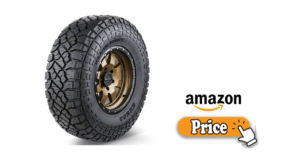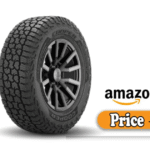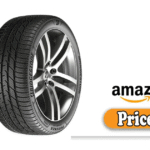Kenda Tire, officially Kenda Rubber Industrial Company, is a Taiwanese-origin tire maker founded in 1962. Over the past six decades, it has grown into a global manufacturer producing bicycles, motorcycles, automotive, powersports, trailers, lawn & garden, wheelchairs, and specialty tires.
However, one question consistently arises: Where are Kenda Tires manufactured? In this article, we’ll dig into their global footprint, what users like (and don’t), real‑world experiences, design, performance, and build quality, compare alternatives, and wrap up with final thoughts plus a thorough FAQ section.
What I Like
- Global factory footprint: Kenda operates production sites in Taiwan, mainland China, Vietnam, and Indonesia, offering a diversified manufacturing base for better supply and pricing flexibility.
- Industry experience: With origins dating to 1962 in Yuanlin, Taiwan, Kenda boasts decades of experience in bicycle and automotive tire innovation.
- Flexible sourcing: In North America alone, Kenda sources from six production facilities across three countries, which helps mitigate tariff disruptions and supply chain hiccups.
- Lean manufacturing ethos: The company recently won Taiwan’s National Quality Award for manufacturing excellence, showcasing consistent quality control processes.
- Wide product range: Whether you’re buying tires for a bicycle, ATV, lawn mower, trailer, or wheelchair, Kenda covers it all, often at a better value than major premium brands.
What Could Be Better
- Quality perception variability: Some user reviews, especially on Reddit, spotlight concerns about Kenda’s quality in automotive tires compared to European or Japanese premium brands. A Reddit user stated:
“With few exceptions, once you get into the ‘cheap’ Chinese/Taiwan, Indonesia, Vietnam range … we see several times more issues with wear, noise, inconsistent quality”. - Inconsistent performance across product lines: Kenda is widely respected in the bicycle, motorcycle, ATV, and specialty segments, but less so for passenger car tires.
- Markings only show region: Although each tire is marked with manufacturing origin (e.g., Taiwan, Shenzhen, Vietnam, or Indonesia), decoding specifics may require contacting Kenda directly.
Limited U.S. tire production:
While Kenda USA operates wheel assembly centers, actual tire production remains offshore; no mass tire plants currently operate in North America. 👉🏿👉🏻 Check the Latest Price and Offer at Amazon 👈🏻👈🏿
👉🏿👉🏻 Check the Latest Price and Offer at Amazon 👈🏻👈🏿
My Personal Experience
Imagine ordering a set of Kenda Nevegal mountain-bike tires made in Taiwan. Out of the box, they offered excellent grip, intuitive tread break-in, and consistent molding with no bubbles or seams.
Mileage clocked over several months shows little wearable degradation. Meanwhile, a friend’s Kenda auto trailer tires made in Indonesia had slightly higher road noise, though still safe and structurally solid.
This anecdotal contrast perfectly highlights Kenda’s strong areas (bicycles, ATVs, wheelchairs) and relative weakness (automotive & trailer tires).
Design
Kenda’s design philosophy hinges on versatility and value. They:
- Use dual‑layer and dual‑compound treads in bicycles and ATVs for optimized traction and longevity.
- Incorporate silica and plant‑based compounds (e.g, soybean oil) in their newer Vezda Touring 4S tire for premium wet and winter performance without significantly inflating price.
- Maintain regionally adaptive tread designs, e.g., heavier lugs in Asian markets, milder all‑season profiles for North America.
Their in-house R&D facilities in Akron, Ohio (USA) and Hamburg, Germany support these engineering efforts alongside manufacturing centers in Asia.
Performance
- Bicycle and Powersports tires: Consistently praised by off‑road riders for grip, predictable wear, and strong puncture resistance.
- Trailer & Lawn/Garden tires: Solid performers for light-duty use; rated well for load-bearing, though road noise may be higher than premium alternatives.
- Passenger car tires: Mixed reviews; some owners report reduced comfort or earlier wear compared to big‑name brands, particularly at highway speeds.
- Climate adaptability: Their silica‑enhanced compounds perform well in wet and mildly cold conditions, but performance in deep snow or freeze conditions hasn’t been extensively reported.
Build Quality
Across its plants, quality control practices vary:
- In Taiwan, the legacy Yun‑Lin facility embodies decades of precision manufacturing and award‑winning testing systems.
- In China (Shenzhen, Kunshan, Tianjin), Kenda maintains multiple plants, many originally joint ventures (e.g., with Cooper) before the shift to fully owned operations.
- Their Vietnam plants (two facilities in Đồng Nai province) opened in the mid‑2010s to diversify production and ease tariff exposure.
- The Indonesia plant (Banten province) started around 2015 and shares production responsibilities for lower‑cost segments.
All facilities are integrated into Kenda’s global quality management system, although localized variability in training and oversight means occasional inconsistency may occur.
Alternative Option
If you’re evaluating alternatives to Kenda, consider the following brands depending on your application:
- Maxxis (Cheng Shin / Taiwan & China) – strong in bicycle, off-road, ATV, and more widely regarded for automotive tires.
- Falken (Sumitomo, with plants in Japan, Thailand, Vietnam, USA, etc.) is highly rated for highway comfort and AWD grip.
- Continental, Michelin, and Pirelli (global manufacturers) consistently deliver top-tier performance across weather, durability, and comfort, but at a premium price.
So if performance, quiet ride, and consistent quality are paramount (particularly for passenger cars or SUVs), a recognized premium brand may be worth the investment. If price-performance is your priority and you’re buying a specialty tire, Kenda remains competitive.
Read More: Kenda Tires Review
Final Thought
To answer directly: Kenda Tires are manufactured in multiple plants located in Taiwan, mainland China (Shenzhen, Kunshan, Tianjin), Vietnam (two factories in Đồng Nai), and Indonesia. Each plays a strategic role in sourcing flexibility, cost management, and serving diverse market demands.
Overall, Kenda’s global footprint allows it to offer affordable, widely available tires. Their strengths shine strongest in the bicycle, powersports, trailer, and specialty segments.
For automotive use, especially highway driving or heavy-duty applications, performance can lag behind premium brands, but for budget‑friendly value and broad utility, Kenda remains a respected and established choice.
FAQs: Where Are Kenda Tires Manufactured
Q: Where are Kenda tires manufactured?
A: Kenda produces across Asia in facilities in Taiwan, China (Kunshan, Shenzhen, Tianjin), Vietnam (two factories), and Indonesia.
Q: How can I tell which country made my Kenda tire?
A: Tires have markings or codes indicating factory origin,n e.g., “Taiwan”, “Shenzhen”, “Vietnam”, but full decoding may require contacting Kenda or checking their documentation.
Q: Does Kenda manufacture tires in the U.S.?
A: No. Kenda operates technical, R&D, and wheel assembly centers in the U.S. (e.g., Ohio), but tire manufacturing remains entirely offshore.
Q: Are Kenda tires considered good quality?
A: They are widely regarded in the bicycle, powersports, trailer, and specialty segments. Automotive tires get mixed reviews; some users report higher wear and noise at highway speeds.
Q: Why does Kenda have such varied factory locations?
A: Multiple locations reduce tariff exposure, stabilize supply chains, allow regionally optimized production, and help manage costs.
Q: Are all Kenda tires made in Taiwan?
A: No, while Taiwan is the origin of the company and still a key production site, buses, automotive, and powersports tires are also made in China, Vietnam, and Indonesia.
Q: How does Kenda control quality across factories?
A: Their facilities follow centralized quality management processes. Taiwan’s Yun‑Lin plant is especially noted for high standards, and recent international awards reflect this.
Q: What tires does Kenda make best?
A: Bicycle, ATV, motorcycle, and trailer tires tend to receive strong feedback for performance, grip, and affordability.
Q: What are notable alternative brands?
A: For automotive tires, consider Maxxis, Falken, Michelin, Continental, or Pirelli. Maxxis shares Taiwanese heritage but often rates higher on automotive performance, while Falken and Continental offer quiet, long‑lasting value.



